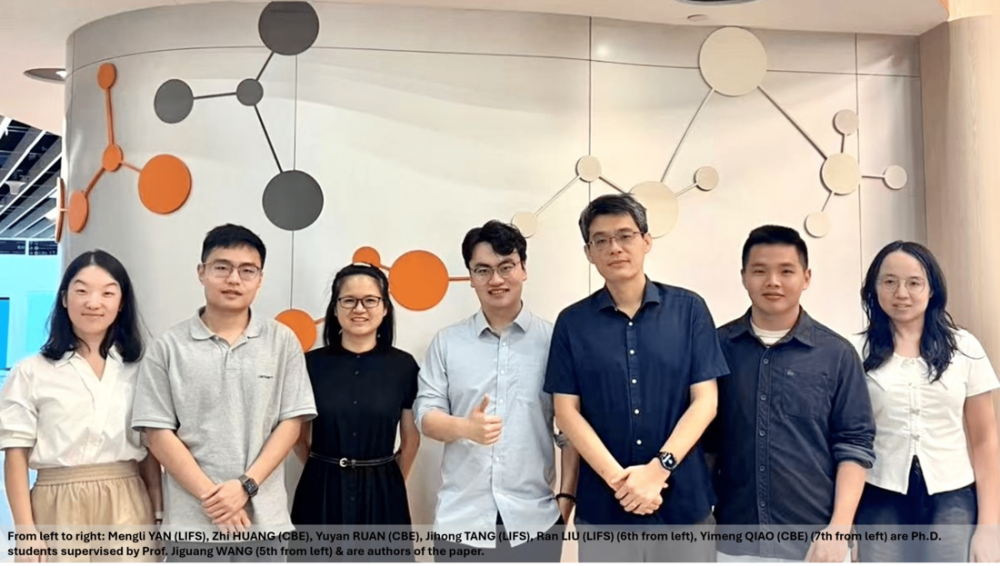
Diffuse glioma is a type of brain tumor that can vary significantly in behavior and response to treatment. Among them, isocitrate Dehydrogenase (IDH)-mutant astrocytoma represents a major subtype. These tumors are particularly aggressive and often recur after treatment. Understanding the different molecular subtypes of these tumors is crucial for improving patient management.
In a recent study led by Prof. Jiguang WANG from the Division of Life Science (LIFS) and Department of Chemical and Biological Engineering (CBE), along with his students Jihong TANG (LIFS) and Yuyan RUAN (CBE), in collaboration with colleagues from Beijing Tiantan Hospital and Shanghai Huashan Hospital, researchers identified four major proteomics subtypes, and found out that the Immune/Mesenchymal-Enriched (IME) subtype accounts for about 13% of cases. This subtype is characterized by unique immune features, specific gemistocytic differentiation, and poorer survival rates. Notably, the IME subtype tends to become more common in recurrent tumors.
Key Findings
Researchers identified four proteomics subtypes of IDH-mutant astrocytomas:
Highlights
The team integrated multi-omics, single-cell sequencing, and spatial omics with an AI-powered analytical framework to gain insights into the tumor’s biology. This approach revealed that certain genes related to immune response are highly active in IME tumors, potentially explaining their aggressive nature.
This work opens new avenues for understanding and treating these tumors. An AI-powered tool was also developed to help classify patients, paving the way for more personalized treatment strategies. The researchers are now undertaking deeper mechanistic studies and exploring therapeutic strategies for these patients. Overall, this research enhances our understanding of IDH-mutant astrocytomas and aims to improve outcomes for patients facing this challenging disease.
Publication
JihongTang, Wenhua Fan, Yuyan Ruan, Xing Liu, Fufang Qiu, Jie Feng, Guoshi Huang, Mengli Yan, Hui Wang, Quanhua Mu, Ran Liu, Yingxi Yang, Zhi Huang, Yimeng Qiao, Xuejie Wang, YumengGuo, Mingchen Yu, Ying Zhang, Ruichao Chai, Fan Wu, Zheng Zhao, Zhaoshi Bao, Wei Hua, Kai Liu, Qianghu Wang, Ying Mao, Qing Chang, Tao Jiang, Jiguang Wang. Protein-based classification reveals an immune-hot subtype in IDH mutant astrocytoma with worse prognosis. Cancer Cell, 2025, DOI: 10.1016/j.ccell.2025.08.006.